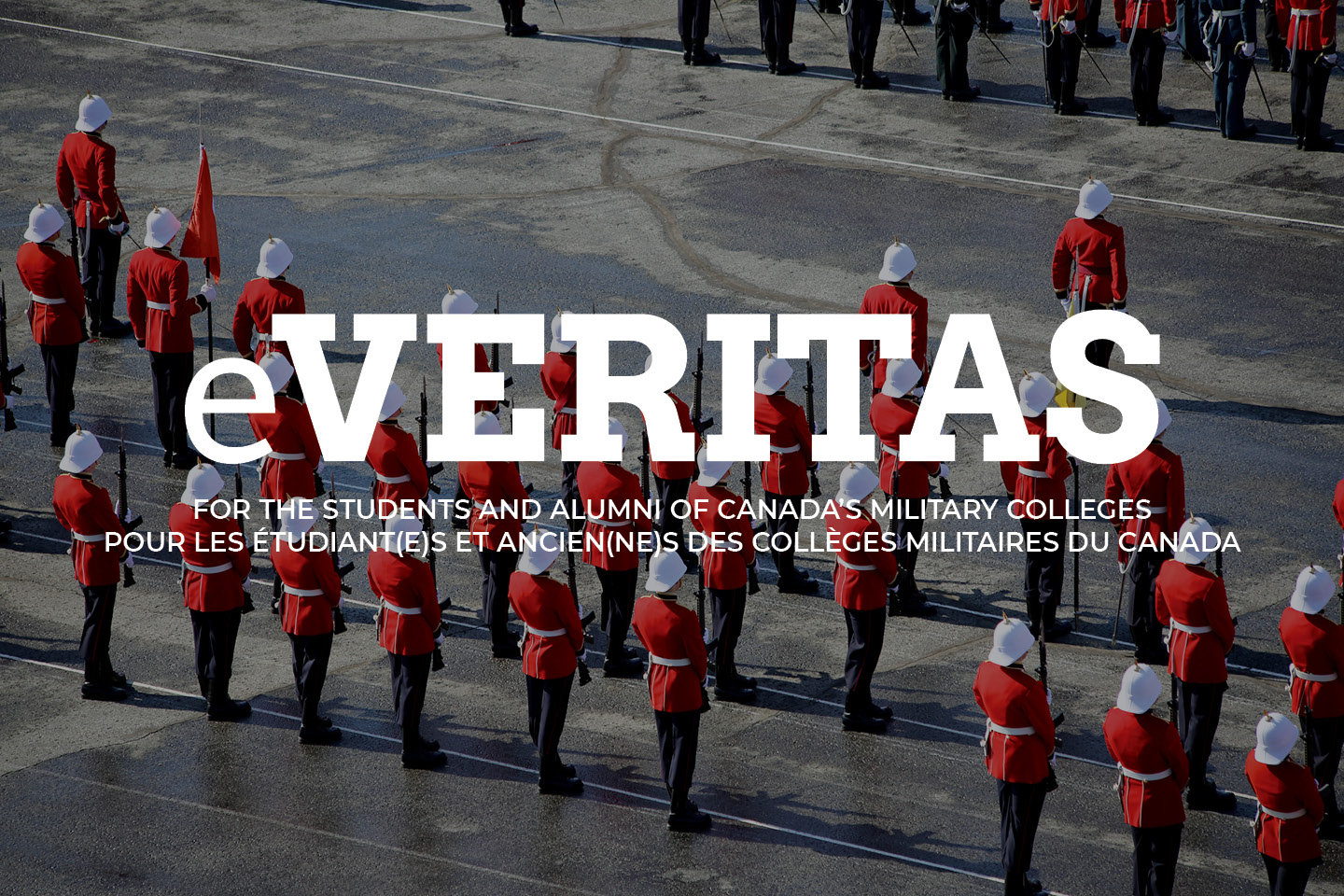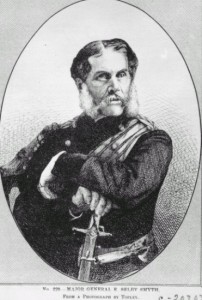
This is the second in a four part series on the politics and people involved with the creation of the Royal Military College of Canada. It is taken from pages removed from the “Queen’s Quarterly 74, no. 3 (Autumn 1967), ” found in the shoe box of old photos in Panet House.
The Founding of the Royal Military College – Gleanings from the Royal Archives
By Adrian Preston
Modelled more on West Point than on Sandhurst but under imperial control until 1919, the Royal Military College, Kingston, from its establishment in 1876 offered a four year course designed to prepare students for civil as well as military employment, with salutary results and others less salutary.
Part 2
 Clearly, one of the first and certainly most crucial steps in attempting to restore its influence in Canadian military affairs was the appointment by Britain of a commander for the Canadian Militia. In Dufferin’s opinion, the delicate nature of his task demanded special extra-military qualifications. The Commander should not only be a competent soldier, but “a person of resource, of tact, of temper, willing to work in due subordination to the Minister of War, and yet capable to inspiring such confidence in the Government, as to get his own way in matters relating to his Profession.” He should realise that Canada was a young country, with undeveloped resources, with a House of Commons avers to military expenditure, and profoundly imbued with the notion that peace could never be interrupted. He would have to exercise all his ingenuity in creating a rough and ready organisation from the materials at his disposal, and therefore should not be “a hoity-toity gentleman, with a supercilious contempt for colonists, and the somewhat homely type of society which of necessity prevails in a new country.” Above all, he must be made to understand that he came as “an Officer of the Dominion, at the disposal and acting under the instructions of the Minister of Militia.”
Clearly, one of the first and certainly most crucial steps in attempting to restore its influence in Canadian military affairs was the appointment by Britain of a commander for the Canadian Militia. In Dufferin’s opinion, the delicate nature of his task demanded special extra-military qualifications. The Commander should not only be a competent soldier, but “a person of resource, of tact, of temper, willing to work in due subordination to the Minister of War, and yet capable to inspiring such confidence in the Government, as to get his own way in matters relating to his Profession.” He should realise that Canada was a young country, with undeveloped resources, with a House of Commons avers to military expenditure, and profoundly imbued with the notion that peace could never be interrupted. He would have to exercise all his ingenuity in creating a rough and ready organisation from the materials at his disposal, and therefore should not be “a hoity-toity gentleman, with a supercilious contempt for colonists, and the somewhat homely type of society which of necessity prevails in a new country.” Above all, he must be made to understand that he came as “an Officer of the Dominion, at the disposal and acting under the instructions of the Minister of Militia.”
In consultation with Carnarvon, the Duke of Cambridge had proposed to nominate Major-General Sir Garnet Wolseley. Now Wolseley had already contributed a decade of service in the defence of Canada. His unofficial visit to the Confederate Headquarters, his command of the Comaps of Observation and Instruction at LaPrairie and Thorold during the Fenian scares of 1865-9, and his organisation and conduct of the bloodless Red River Expedition of 1870 had given him much useful experience with and a high regard for volunteer militia armies. He had been actively associated under MacDougall and Cardwell with the reform movements in Canada and Britain, and consequently appeared a logical and suitably distinguished choice. Wolsely, however, as Carnarvon perceived, had “other views.” He had returned from Ashanti seemingly indispensable, the self-appointed leader of “the Young Army school of reform,” with a reputation and popular prestige overshadowing even Napier’s, and with revived preoccupations about capturing the Indian Command now that war with Russia in Central Asia seemed a more imminent probability. Moreover, his formation of a sinister and suspect school of special service officers – the Ashanti Ring – as an improvised General Staff, his deep absorption in War Office politics and reform agitation and his ambitious inveigling to obtain the Indian Command – all constituted a direct challenge to the Duke of Cambridge’s authority and prestige which he understandably resented and took steps to mitigate. It was noted by Carnarvon that the Duke of Cambridge’s nomination of Wolselely, like his earlier representation to Napier that Wolselely would make an “able and zealous” Adjutant-General for the Indian Armies, was solely prompted by the Duke’s wish “to remove him for the present from England.” The appointment therefore fell to Major-General Sir Edward Selby Smyth, a conventional officer with long if undistinguished service in India, South Africa, and Mauritius.
Selby Smyth thoroughly understood the nature of his relationship with the Canadian Government, and soon won the confidence of his Ministers. Unceasingly, in all his reports, he stressed the special nature of the obligations concerning national security that were inseparable from nationhood. The German and American wars of unification had vividly shown that professionalism in military organisation and affairs was no less essential or inescapable than in constitutional, financial, or judicial practice and behaviour. The very magnitude and special nature of Canada’s defence tasks – continental frontier strategy, coastal defence, border commotions, Indian pacification, military colonisation, and imperial military contributions – as well as her potential as a “great and powerful nation” suggested the creation of professional and permanent military institutions, at least a small standing army with its own military and staff college.
“The Founding of the Royal Military College – Gleanings from the Royal Archives” will continue in the next e-Veritas.

